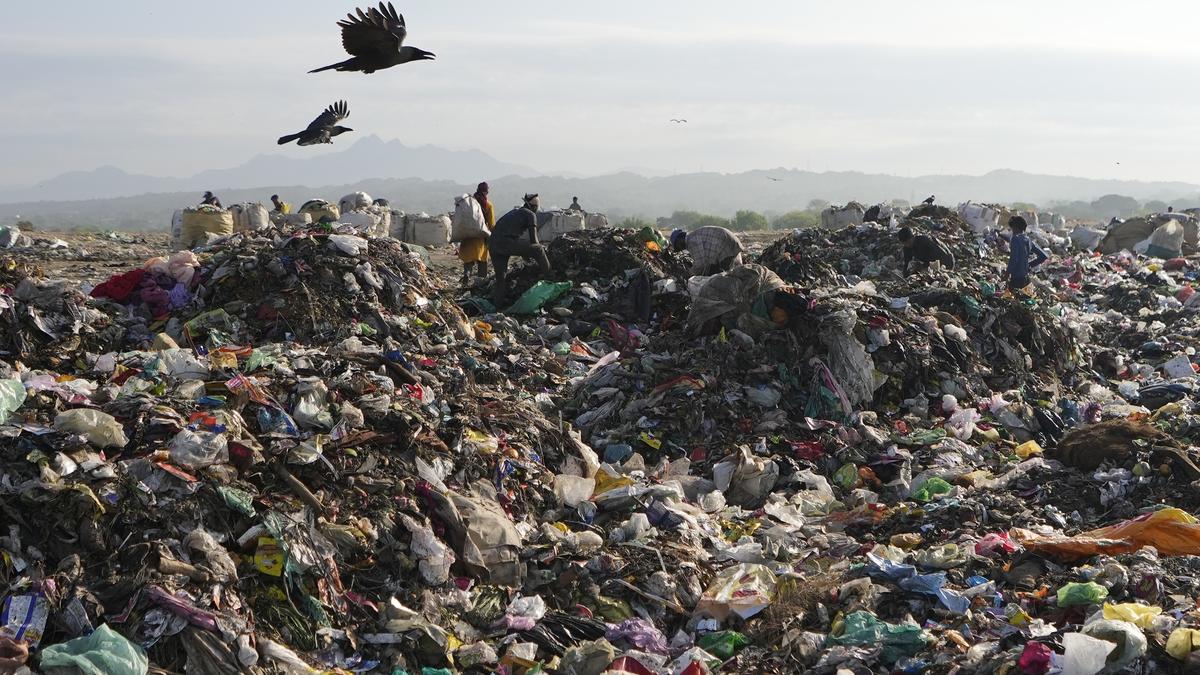
Developing countries should be compensated for moving away from plastic: India
The Hindu
India proposes compensation for plastic control costs, technology transfer, and a new fund at Global Plastics Treaty negotiations.
Developing countries will only comply with ‘control measures’ on plastic if they are compensated for the cost they entail, India said in a proposal at the Global Plastics Treaty negotiations on Wednesday. This is India’s first substantive move during the talks being held at the South Korean city of Busan.
Echoing a principle from climate change negotiations, India has also emphasised that there must be a transfer of technologies from developed to developing nations that must respect “national circumstances.”
Exactly what these ‘control measures’ and ‘costs’ are has not been specified yet. They are among a plethora of crucial undefined terms; in fact, there is still no agreed definition for the word ‘plastic’ as far as the treaty is concerned. These and many other concepts are at the heart of the negotiations, involving around 170 countries.
India has also proposed that a new dedicated multilateral fund be created with contributions to be “additional and distinct” from other financial transfers. This fund would be governed by a duly constituted subsidiary body that will also facilitate “...transfer of technology from developed countries to developing countries, for achieving a just transition towards sustainable production and consumption of plastics, in accordance with national circumstances under the financial mechanism,” India’s submission added.
The proposed new fund will provide “grant-based finance to developing countries, and the developed countries will be mandated to replenish the fund on a periodic basis and also provide flexibility of accepting private funds based upon agreed modalities,” the Environment Ministry said in a statement.
Officially called the 5th Intergovernmental Negotiations Committee (INC), which is administered by the United Nations Environment Programme (UNEP), the talks are scheduled to conclude on December 1. The purpose of these talks is to evolve a consensus text setting the ground for periodic meetings akin to the better-known annual Conference of Parties (COPs) of the UN Framework Convention on Climate Change. This base text will undergo modifications at these meetings provided there is consensus on every word and line in the deliberated text and these, it is hoped, will enable signatory countries to move towards a future where they are bound to enforce measures to control and eliminate plastic waste.
More ambitiously, the treaty aims – and this is the tinder box – to have countries cut the production of plastic itself and as a consequence, plastic polymers, which are components of most products undergirding modern economies.

One dies, eight hospitalised after inhaling HCL fumes at pharma company in Andhra Pradesh’s Anakapalli district. About 400 litres of HCL leaked from the reactor-cum-receiver tank at Unit-III of the company, which affected nine workers, says Collector. While the condition of six of them is stable, two are on ventilator support. Chief Minister Chandrababu Naidu directs authorities to provide advanced treatment to the victims. Home Minister Anitha expresses anger over repeated such incidents.










